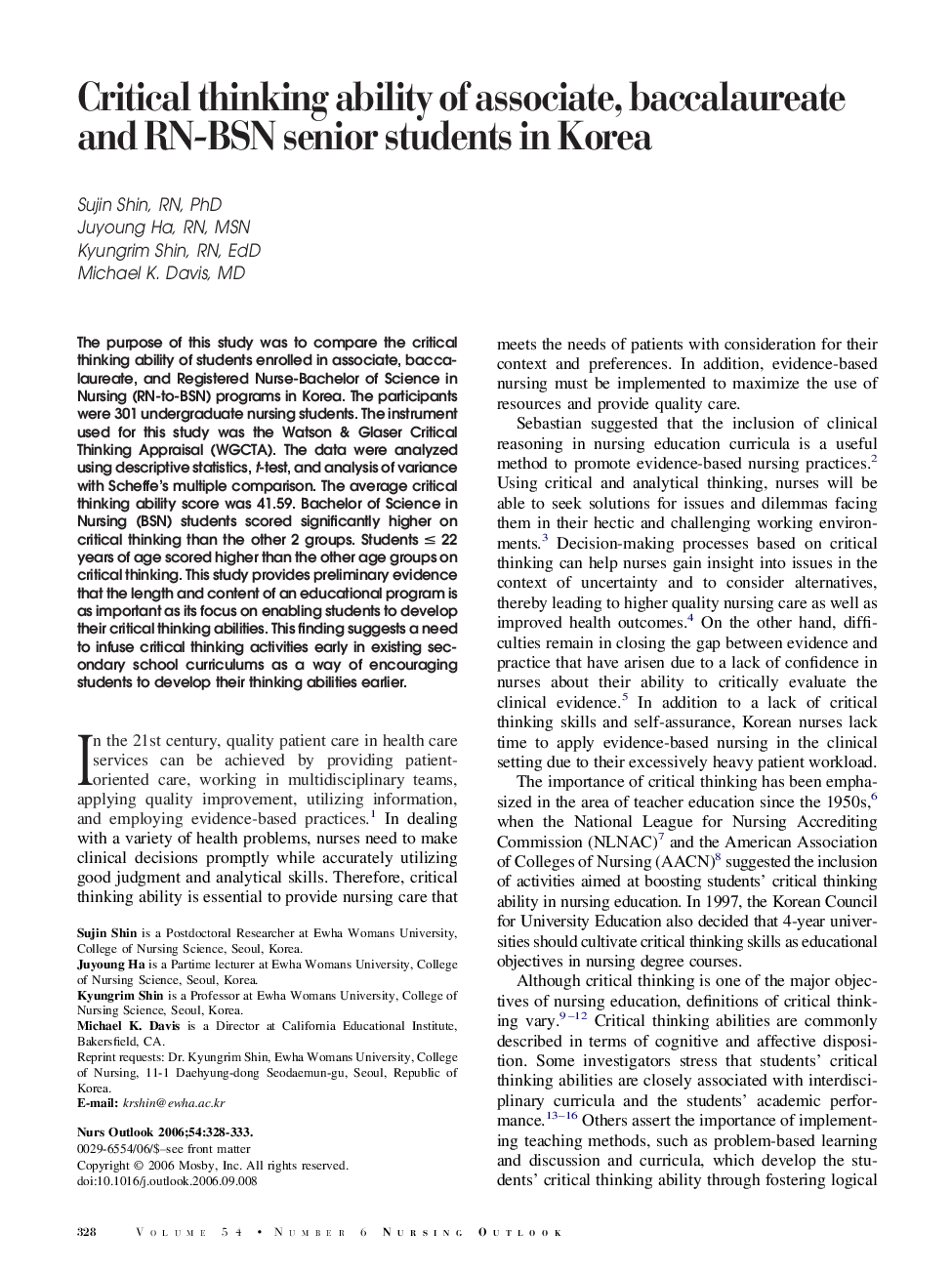| Article ID | Journal | Published Year | Pages | File Type |
|---|---|---|---|---|
| 2676605 | Nursing Outlook | 2006 | 6 Pages |
Abstract
The purpose of this study was to compare the critical thinking ability of students enrolled in associate, baccalaureate, and Registered Nurse-Bachelor of Science in Nursing (RN-to-BSN) programs in Korea. The participants were 301 undergraduate nursing students. The instrument used for this study was the Watson & Glaser Critical Thinking Appraisal (WGCTA). The data were analyzed using descriptive statistics, t-test, and analysis of variance with Scheffe's multiple comparison. The average critical thinking ability score was 41.59. Bachelor of Science in Nursing (BSN) students scored significantly higher on critical thinking than the other 2 groups. Students ⤠22 years of age scored higher than the other age groups on critical thinking. This study provides preliminary evidence that the length and content of an educational program is as important as its focus on enabling students to develop their critical thinking abilities. This finding suggests a need to infuse critical thinking activities early in existing secondary school curriculums as a way of encouraging students to develop their thinking abilities earlier.
Related Topics
Health Sciences
Nursing and Health Professions
Nursing
Authors
Sujin RN, PhD, Juyoung RN, MSN, Kyungrim RN, EdD, Michael K. MD,
